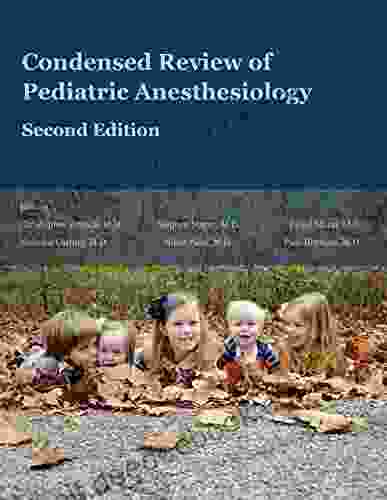Study Guide for Karl Marx's Economic and Philosophic Manuscripts of 1844: Unraveling the Foundations of Marxist Thought

The Economic and Philosophic Manuscripts of 1844, written by Karl Marx, stands as a pivotal work in the history of social and economic thought. Composed during Marx's early years as a budding philosopher and economist, this collection of manuscripts offers a profound examination of the nature of human existence under capitalism, laying the groundwork for his later magnum opus, Capital. 5 out of 5 This study guide aims to provide a comprehensive understanding of Marx's groundbreaking ideas presented in the Manuscripts. We will delve into the core concepts of alienation, exploitation, and the nature of human labor, exploring how they shaped Marx's revolutionary critique of capitalism. Alienation, a central theme in the Manuscripts, refers to the estrangement of individuals from their own labor, their products, and ultimately from their true human nature. Marx argues that under capitalism, workers become alienated from their labor because they do not own or control the means of production. Instead, they are forced to sell their labor as a commodity to capitalists, who then exploit their labor to generate profit. This alienation from labor leads to a further alienation from the products of labor. Workers are no longer able to recognize themselves in the commodities they produce, as these products become the property of the capitalists. This alienation extends to the worker's very essence, as they are reduced to mere cogs in the capitalist machine, deprived of their creativity and individuality. Closely linked to alienation is the concept of exploitation. Marx argues that under capitalism, workers are systematically exploited by capitalists. This exploitation occurs when workers are paid less than the full value of their labor. The difference between the value of the worker's labor and the wages they receive is known as surplus value, which is appropriated by the capitalist as profit. This exploitation stems from the fundamental contradiction inherent in capitalism: the workers, who create all wealth through their labor, are the ones who are most impoverished. The capitalists, who own the means of production but do not actually labor, reap the benefits of the workers' labor without contributing to its creation. Marx's critique of capitalism in the Manuscripts is deeply rooted in his understanding of human nature. He argues that human beings are inherently social creatures who have a natural desire to create, cooperate, and fulfill their potential. However, under capitalism, these innate human qualities are thwarted. Marx believed that true human freedom and fulfillment can only be achieved through the abolition of capitalism and the creation of a communist society. In a communist society, the means of production would be collectively owned and controlled by the workers themselves, eliminating exploitation and alienation. Marx's analysis of capitalism and human nature in the Manuscripts is grounded in his theory of historical materialism. This theory argues that the economic base of society—the way in which goods are produced and distributed—determines the social, political, and ideological superstructure. In other words, the material conditions of life shape the way we think, feel, and behave. Historical materialism provides a framework for understanding how capitalism emerged and why it has certain inherent contradictions and tendencies. It also helps us understand the role of class struggle in driving social change. The Economic and Philosophic Manuscripts of 1844 is a foundational text in the history of Marxist thought. Marx's analysis of alienation, exploitation, and human nature under capitalism remains as relevant today as it was in the 19th century. His critique of capitalism and his vision of a communist society offer a profound challenge to existing social and economic systems and continue to inspire movements for social justice and human liberation. This study guide has provided an overview of some of the key ideas presented in the Manuscripts. To fully grasp the depth and complexity of Marx's thought, it is essential to read the original text carefully and engage with the many commentaries and interpretations that have been written about it.Language : English File size : 993 KB Screen Reader : Supported Print length : 73 pages Lending : Enabled Alienation
Exploitation
Human Nature
Historical Materialism
Further Reading
5 out of 5
| Language | : | English |
| File size | : | 993 KB |
| Screen Reader | : | Supported |
| Print length | : | 73 pages |
| Lending | : | Enabled |
Do you want to contribute by writing guest posts on this blog?
Please contact us and send us a resume of previous articles that you have written.
 Book
Book Chapter
Chapter Text
Text Story
Story Reader
Reader Library
Library E-book
E-book Magazine
Magazine Paragraph
Paragraph Bookmark
Bookmark Shelf
Shelf Glossary
Glossary Foreword
Foreword Preface
Preface Codex
Codex Tome
Tome Reference
Reference Encyclopedia
Encyclopedia Dictionary
Dictionary Thesaurus
Thesaurus Character
Character Resolution
Resolution Catalog
Catalog Card Catalog
Card Catalog Borrowing
Borrowing Study
Study Research
Research Lending
Lending Academic
Academic Reading Room
Reading Room Rare Books
Rare Books Special Collections
Special Collections Interlibrary
Interlibrary Study Group
Study Group Dissertation
Dissertation Awards
Awards Reading List
Reading List Book Club
Book Club Theory
Theory Textbooks
Textbooks Linda Stout
Linda Stout Paul R Burden
Paul R Burden Michael Laskin
Michael Laskin Stephenie Gaustad
Stephenie Gaustad Joseph Addison
Joseph Addison Susan Nash
Susan Nash Octavia Reese
Octavia Reese Marion Mcnealy
Marion Mcnealy Helen Raleigh
Helen Raleigh Annabel Blackledge
Annabel Blackledge Suzanne Hanchett
Suzanne Hanchett Jon Lymon
Jon Lymon Anna Nicholas
Anna Nicholas Edward F Stanton
Edward F Stanton Matt R Cole
Matt R Cole Anne Carson
Anne Carson Anne Rice
Anne Rice Nicholas Rombes
Nicholas Rombes Michael G Walling
Michael G Walling Michael Neuman
Michael Neuman
Light bulbAdvertise smarter! Our strategic ad space ensures maximum exposure. Reserve your spot today!
 Richard AdamsFollow ·5.8k
Richard AdamsFollow ·5.8k Isaac AsimovFollow ·8.1k
Isaac AsimovFollow ·8.1k Casey BellFollow ·7.8k
Casey BellFollow ·7.8k Robert ReedFollow ·19.5k
Robert ReedFollow ·19.5k Ray BlairFollow ·6.8k
Ray BlairFollow ·6.8k Julio CortázarFollow ·11.3k
Julio CortázarFollow ·11.3k Zadie SmithFollow ·11.3k
Zadie SmithFollow ·11.3k John SteinbeckFollow ·8.9k
John SteinbeckFollow ·8.9k

 Beau Carter
Beau CarterLater Political Writings: A Window into the Evolution of...
Political thought, like...

 Tyrone Powell
Tyrone PowellThe Essential Guide to Family School Partnerships:...
: The Importance of...

 Christian Barnes
Christian BarnesAdvancing Folkloristics: Conversations with Jesse...
Dr. Jesse Fivecoate is an...

 Jake Carter
Jake CarterHal Leonard DJ Method Connell Barrett: A Comprehensive...
Are you ready...

 John Updike
John UpdikeCondensed Review of Pediatric Anesthesiology Second...
Condensed Review of...

 Guillermo Blair
Guillermo BlairExploring the Complexities of Motherhood and Identity: A...
Elena Ferrante's "The Lost...
5 out of 5
| Language | : | English |
| File size | : | 993 KB |
| Screen Reader | : | Supported |
| Print length | : | 73 pages |
| Lending | : | Enabled |












